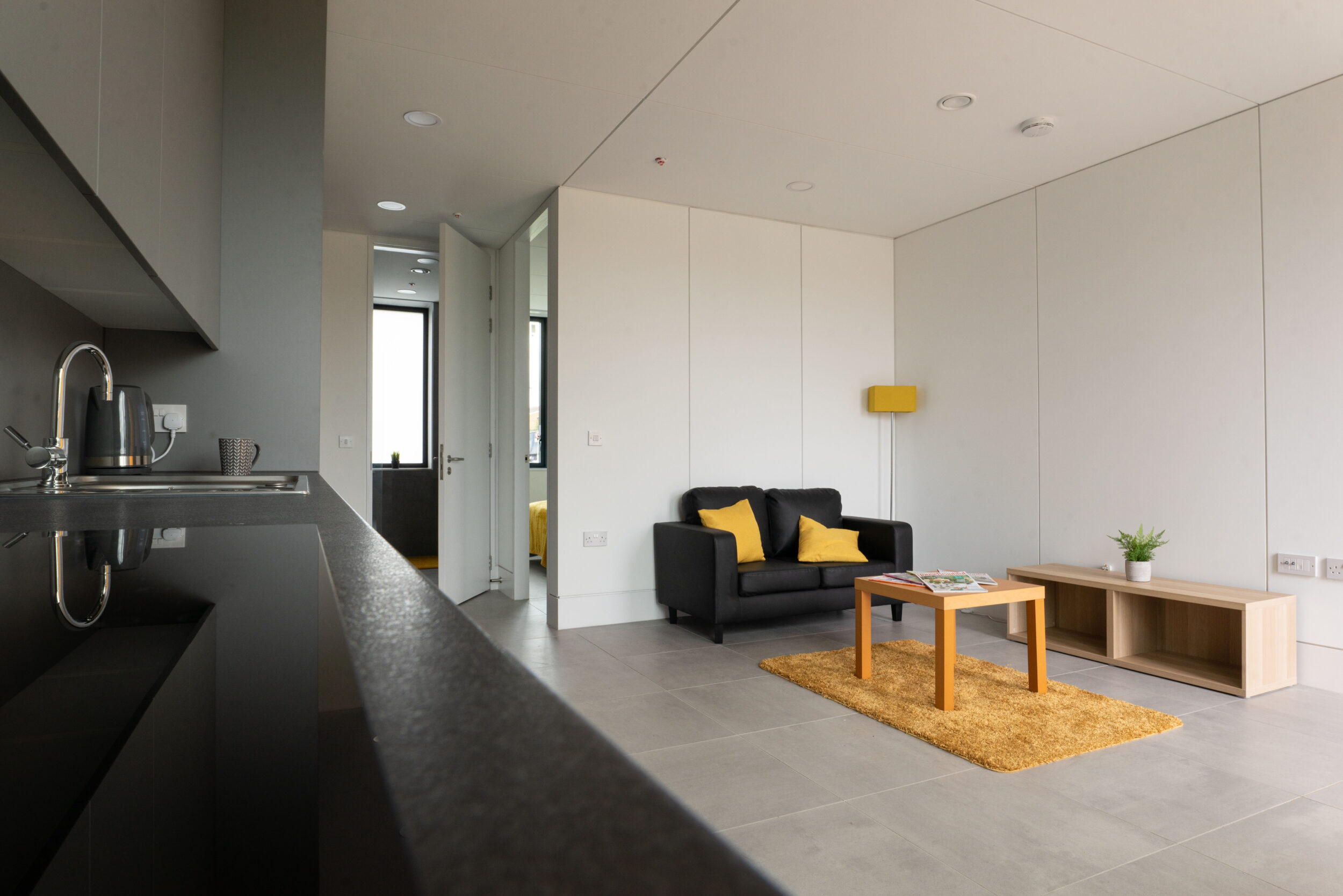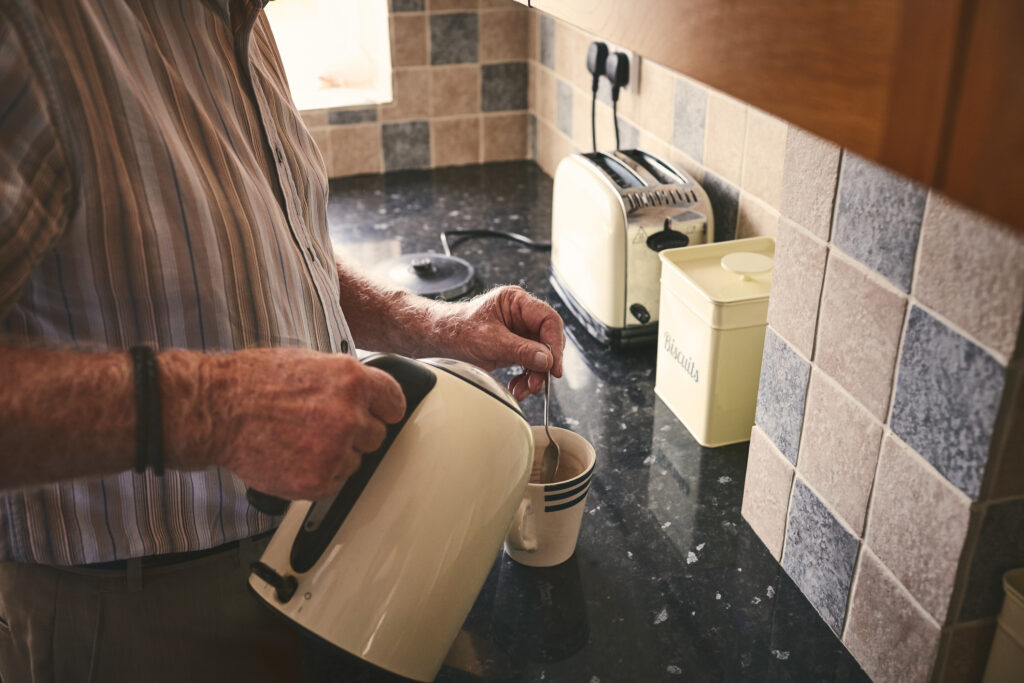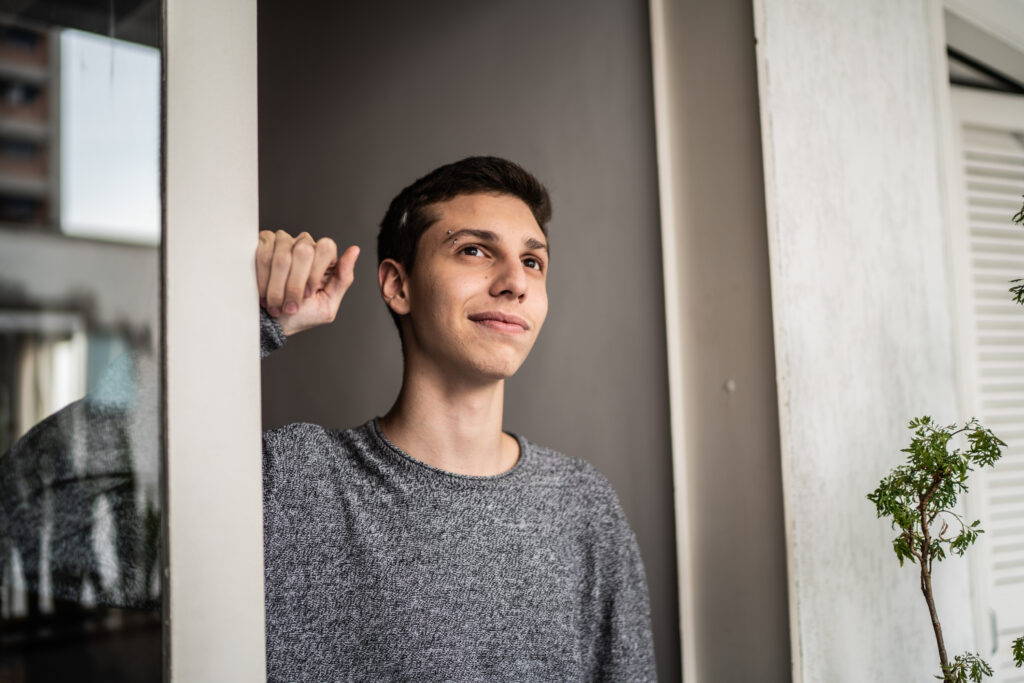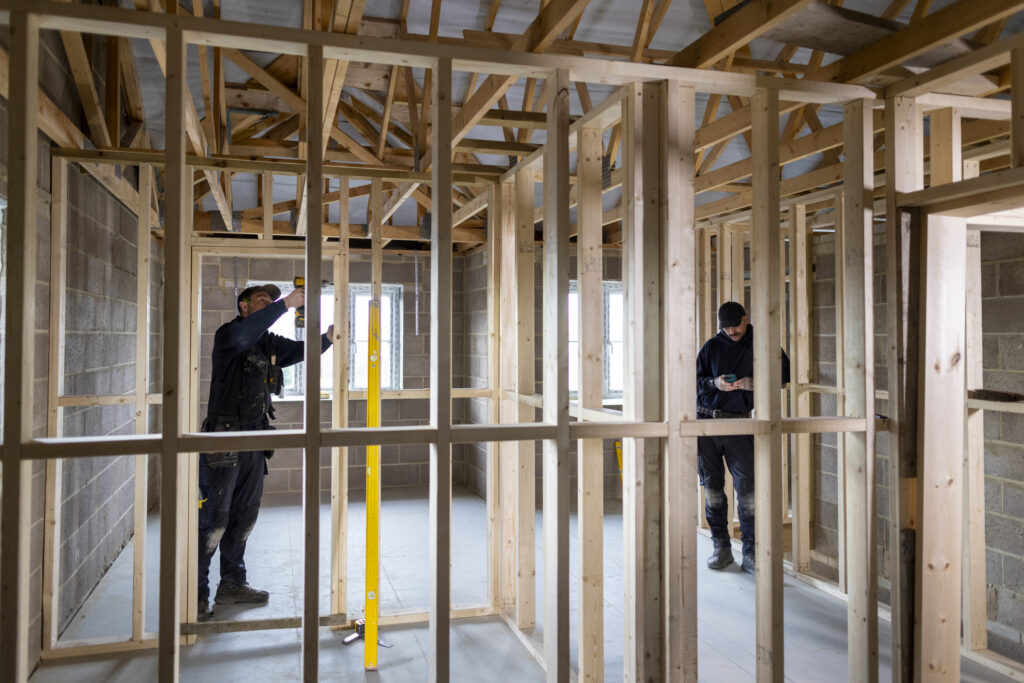
“We’re getting £5 million of assets for less than £1.5 million of loan finance”
YMCA Thames Gateway has taken a different approach to affordable housing. The charity’s 39 new flats were built off-site, saving time, money and disruption. The scheme attracted a grant, which together with Charity Bank’s loan enabled the project to go ahead.
One of YMCA Thames Gateway’s biggest challenges is moving people on from its hostel. The solution? Creating its own affordable homes on-site.
Rather than traditional flats, the charity decided to opt for modular units which have been built in a factory. As a result, there’s been minimal disruption to the hostel and the charity has saved a considerable amount of time and money.
The 39 units are being financed through a grant from the Greater London Authority’s Affordable Homes programme, and a £1.43m loan from Charity Bank. They combine the engineering expertise of AECOM with the architectural design of Rogers Stirk Harbour + Partners (RSHP).
We spoke to Paul Setterfield, Executive Director of Finance & Resources at YMCA Thames, to find out more.
Is there a particular need for single bedroom affordable housing in your area?
There’s a real shortage of affordable housing in East London, particularly for young people on a low income. It’s very expensive to buy a home around here; you’re looking at £180-250k for a one bedroom flat. Rental prices reflect that. So, for many young people, their only real option is multiple occupancy housing, which is often far from ideal.
Rent for our new units is 70% of the market average, so they’ll be much more affordable.

YMCA Thames Gateway ©
How will the new units support your hostel?
Our hostel has 148 bedrooms and there’s always a waiting list. The biggest challenge is moving people on from it. We help them to find a job, develop life skills and so on, to get them to the point where they’re ready to move on, but there’s nowhere for them to go. The new units will help to free up space.
How long will people be able to stay?
They’ll be able to stay in the new units for up to five years, but we expect most people will stay for around two years. We want to give tenants stability and comfort. The units are on site, so they will still receive support from us when they need it. They’ll be able to make a real home here, with the option of living with a partner, so it’s a real steppingstone. The aim is that they will be able to save enough for a deposit to move into a new home of their own.
What benefits have you found from using modular units, rather than going for traditionally built flats?
The build has been a lot quicker and cheaper. Plus, the modules are built off-site so it minimises disruption. They are basically stacked in place and then ‘stitched’ together. And because they’re individual modules, there’s better fire protection.
The quality is amazing. The flats don’t feel like you’d expect them to. They’re really solid, with high ceilings, built-in wardrobes, modern kitchens and so on. And from the outside, it just looks like a modern block of flats.
We’re already looking at doing a lot more builds like this over the next few years. It’s still a developing tech, but as it progresses the cost is likely to come down further. It gives us the opportunity to get lots of units on the market quickly.
Presumably, they’re more environmentally friendly and will help to reduce heating costs for the tenants?
Yes. They’re very well insulated and designed to minimise heat loss. They also use modern heating systems, including mechanical ventilation with heat recovery (MVHR), so they’re very energy efficient.
The development incorporates solar panels, which will provide clean electricity and reduce carbon emissions. We’re also using low-flow water fittings and other technology to reduce water use. The build itself is also more environmentally friendly than traditional builds.
Was the build affected by COVID-19?
To an extent. The factory in Lincolnshire had some difficulties. We were hoping to finish in September or October. Now we’re looking to complete around Christmas and move residents into their new homes in January. So it’s not a huge delay, but we know things might slow down again with the recent spike in cases.
What made you decide to build new properties, rather than lease existing ones to let out?
We currently have a mix of lease and freehold properties. An opportunity came up from the Greater London Authority’s Affordable Homes programme, which meant we could secure funding to develop new affordable homes and increase our housing stock.
We originally applied for grant funding for 100 units. We had agreements with local authorities for two sites, but those agreements didn’t pan out. Thankfully, we were able to move forward with the land on our own site.
We haven’t developed anything else ourselves for decades, so it’s quite a new thing for us, but too good an opportunity to miss. We’re getting £5 million of assets for less than £1.5 million of loan finance. And we were confident that we could generate a return.
Could you have achieved what you have without the loan?
We could have looked at using all of our reserves and selling other assets, but we really didn’t want to do that. The only realistic option was to look for finance.
Why did you choose Charity Bank for your loan?
Partly because of their reputation. We hadn’t borrowed from them before, but other YMCAs have, so that was reassuring.
We did look at other providers, both in the charity and commercial areas. What really stood out was that Charity Bank clearly understood us and YMCAs in general. They were genuinely excited about the project and wanted to support us.
We felt that commercial banks were just looking at the transaction. Charity Bank was looking at it as a partnership. They see us as a partner, not just a client.
The loan will clearly benefit your service users, but would you say it’s also helping to strengthen your organisation?
Our main business strategy is to develop through growth. We need to generate additional revenue that will support that growth and cover other organisational costs. This scheme is a key part of that. It’ll generate a surplus and help us to keep growing and keep thriving.
How did you find the process of applying for the loan?
It was a bit of a learning process, and there was a fair bit of admin, but we were well supported by Charity Bank. They were very clear about what we needed to do when, resolutions that needed to be passed by the board, and so on.
There were a few challenges along the way. We’d agreed who the signatories would be, then had a couple of trustee changes and our treasurer changed, so we needed to redo that part of the process.
We’ve had one other small loan in the last few years, but no other large commercial loans. What we have done recently is open a portfolio with a traditional bank to hold our assets so we can draw down cash. That process was very challenging. There were a lot of complications as they hadn’t anything similar with charities before. Comparing that process with the Charity Bank loan, the Charity Bank loan was pretty easy!
What advice would you have for other charities who are thinking of taking out a loan?
Be realistic about timeframes. Accept that it will take quite a while from that first initial conversation to drawing down the loan. Plan ahead and have those conversations early.
Charity Bank are very keen to discuss new opportunities. We’re currently looking at purchasing a housing scheme from a housing association. As soon as the opportunity came up, I picked up the phone and spoke to Carolyn at Charity Bank. Now we’re progressing, it’s easier as they’re already aware of what the scheme is so we can move things on quicker.
What else is next for YMCA Thames Gateway?
The hostel is 51 years old. We’re managing the building, but it needs work. The accommodation is fine but not what you would build now. We’re looking at a large redevelopment project, including building a new hostel, in the next five years or so.
We’ve started looking at designs, but we’ll need a significant government grant as well as loan finance. Watch this space!
If you’d like to speak to Charity Bank about a loan for your charity or housing association, please call us on 01732 441919.
About Charity Bank
Charity Bank is the loans and savings bank owned by and committed to supporting the social sector. Since 2002, we have used our savers’ money to make more than 1380 loans totalling over £580m to housing, education, social care, community and other social purpose organisations.
Nothing in this article constitutes an invitation to engage in investment activity nor is it advice or a recommendation and professional advice should be taken before any course of action is pursued.


